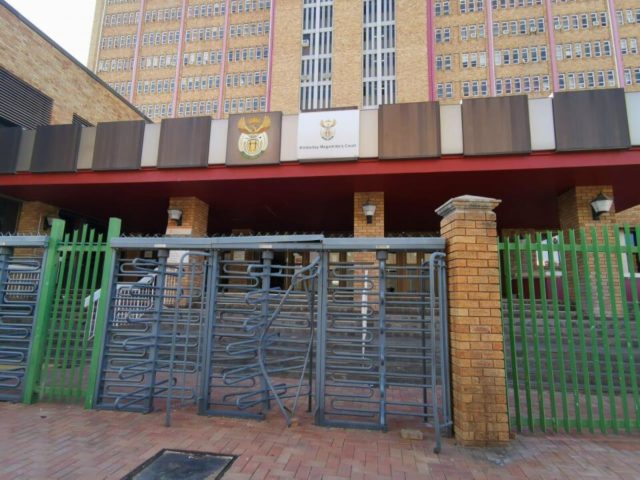‘This means that summonses and warrants of arrest will have to be issued once the lockdown is over, and the trials will have to start over from scratch.’
THE COMMISSION for Gender Equality in the Northern Cape will approach the Director of Public Prosecutions (DPP) and the Office of the Chief Justice if it does not receive a satisfactory response regarding partly heard cases in the regional court that are not being postponed over the lockdown period.
Some of the accused in the cases are awaiting judgment and sentencing.
The legal officer for the Commission for Gender Equality in the Northern Cape, Tsietsie Shuping, said on Monday that no new dates were being assigned for serious cases including murder, rape and human trafficking charges.
“Concern has been raised by victims, as well as witnesses, that accused persons may re-offend or commit other crimes as they are not in custody. The complainants include minors and adults,” said Shuping.
“Complainants believe that justice is not being served and that serious and violent criminals are evading punishment because accused persons are being lost in the justice system.”
He added that the commission had requested a report on the number of cases that were on the court roll that would be affected by the decision not to postpone cases but to rather issue summonses after the lockdown period has passed.
“There is nothing compelling accused persons to return to court once the lockdown period has passed.
“As only urgent matters are currently sitting, accused persons who present themselves to the courts are being told to go back home because of the coronavirus. This means that summonses and warrants of arrest will have to be issued once the lockdown is over, and the trials will have to start over from scratch. Some of the accused may leave town or seek employment elsewhere, where it will be difficult to trace them. This is a waste of state resources.
“We will approach the offices of the DPP and Chief Justice Moeng Moeng if we do not get answers.”
The spokesperson for the National Prosecuting Authority in the Northern Cape and Free State, Phaladi Shuping, said that the decision had been made by the regional court president.
“The decision does not come from the prosecution. The management of the courts rests with the magistrates.
“Senior prosecutors have engaged the regional court president, registering their dissatisfaction on the decision and the impact it will have on the victims of crime.”
The spokesperson for the Minister of Justice, Chrispin Phiri, indicated that the judicial decision made was not a directive of the executive and referred inquiries back to the chief magistrate.
Regional court president Khandilizwe Nqadala explained that under the Disaster Management Act regulations, which were issued by the Minister of Justice and Correctional Services, all criminal cases where accused persons were not incarcerated could not be placed on the court roĺl during the lockdown.
“Summonses will be issued for the new trial dates. If a case is not placed on the court roll, these cases cannot be adjudicated upon or even postponed because they are not before court for attention. Such cases will invariably proceed by way of summons, as provided in the minister’s directions.”
Nqadala added that the courts were compelled to implement the directives in terms of the Disaster Management Act.
“I had in fact prior to the publication of the minister’s directions issued practice directives in terms of the delegation given to me by the chief justice as well as by virtue of the judicial management functions conferred upon me by section 8(4)(b) of the Superior Courts Act, 2013 in terms of which practice directives all cases enrolled for any particular date were to be placed on the roll and attended to by the court in terms of the said practice directives and the law.
“However, the practice directives were not and could not be directions issuable or issued in terms of the Disaster Management Act, 2002 as per regulations issued by the Minister of Cooperative Governance and Traditional Affairs as published in the government gazette, on March 18.
“That being the case my practice directives, in so far as they were in conflict with the disaster management directions, had to give way, and we had to implement the provisions that were set out by the minister.”
Nqadala stated that he had later issued a directive, upon written request, to cover instances that were not specifically covered by the minister’s directions for the placement of accused persons who were not incarcerated.








